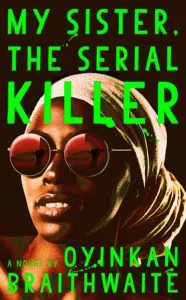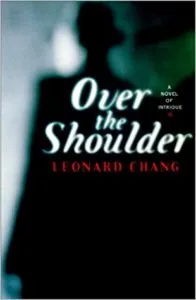
Crime Fiction as Self-Care
This content contains affiliate links. When you buy through these links, we may earn an affiliate commission.
Kicking back with a story about murder, a couple of cookies, and a cup of tea is a rather odd indulgence. But luckily for me, it’s also a rather commonplace one. You see, crime fiction is self-care for me. It’s how I stay relaxed and sink back into myself after a long, tiring day. I don’t find anything as soothing for a sore, worn-out psyche. Whether it’s a slow-burning thriller with a criminal anti-hero or a classic murder mystery that dares you to beat the detective to the punch, I start to breathe easier upon turning the first few pages. I feel less stressed, happier even.
When I put that into words right now, it sounds weird. I wonder if I should feel bad, if there’s something wrong with me. So let’s Sherlock Holmes this; let’s investigate how crime fiction is my version of self-care.

 Ask me what Tom in The Talented Mr. Ripley has for breakfast when he receives a letter from Marge Sherwood in Palermo that indicates she’s given up looking for the man Tom killed. Go on, ask me, and I’ll tell you: “fresh warm rolls” and “cinnamon-flavored coffee.” Ask me what Korede in My Sister, the Serial Killer serves her crush Tade, who she’s trying to keep from succumbing to the charms of her murder-prone sister Ayoola, when he first visits her family’s home. Once again, I’ll tell you: pineapple upside-down cake. Before you ask, yes, I’m aware of how many times I’ve mentioned baked goods in this piece already, and yes, I’m hungry now. Never mind that I was never particularly excited about pineapple upside-down cake before it showed up in this book. The point is, crime fiction helps me savor the little things in life. It makes me curious in ways I otherwise probably wouldn’t be. Appreciative of what I might otherwise not have noticed. It causes me to view my surroundings in a new way.
Ask me what Tom in The Talented Mr. Ripley has for breakfast when he receives a letter from Marge Sherwood in Palermo that indicates she’s given up looking for the man Tom killed. Go on, ask me, and I’ll tell you: “fresh warm rolls” and “cinnamon-flavored coffee.” Ask me what Korede in My Sister, the Serial Killer serves her crush Tade, who she’s trying to keep from succumbing to the charms of her murder-prone sister Ayoola, when he first visits her family’s home. Once again, I’ll tell you: pineapple upside-down cake. Before you ask, yes, I’m aware of how many times I’ve mentioned baked goods in this piece already, and yes, I’m hungry now. Never mind that I was never particularly excited about pineapple upside-down cake before it showed up in this book. The point is, crime fiction helps me savor the little things in life. It makes me curious in ways I otherwise probably wouldn’t be. Appreciative of what I might otherwise not have noticed. It causes me to view my surroundings in a new way.
 via GIPHY
via GIPHY
 Some reads bring this to the forefront, such as Georges Simenon’s Maigret mysteries, in which the inspector shows understanding for the societal reasons people have for committing crimes. I also think of Leonard Chang’s Over the Shoulder, a crime novel with a Korean American protagonist that deals with racial and sociological issues as part of a network of circumstance. But I don’t think an author has to be concerned with social critique to expose the problematic framework that creates inequality in modern society, and that’s what much of the crime fiction I read does for me. Crime writing, by its very nature and the way it thrives on truth and motives, turns a lens on the criminal dictates of society itself.
Having hashed all that out, I don’t feel I’m guilty of any crime in finding crime fiction to be a soothing antidote to reality. So if you enjoy some murder with your tea and cake like I do, carry on! Case closed.
Some reads bring this to the forefront, such as Georges Simenon’s Maigret mysteries, in which the inspector shows understanding for the societal reasons people have for committing crimes. I also think of Leonard Chang’s Over the Shoulder, a crime novel with a Korean American protagonist that deals with racial and sociological issues as part of a network of circumstance. But I don’t think an author has to be concerned with social critique to expose the problematic framework that creates inequality in modern society, and that’s what much of the crime fiction I read does for me. Crime writing, by its very nature and the way it thrives on truth and motives, turns a lens on the criminal dictates of society itself.
Having hashed all that out, I don’t feel I’m guilty of any crime in finding crime fiction to be a soothing antidote to reality. So if you enjoy some murder with your tea and cake like I do, carry on! Case closed.

Crime Fiction Helps Me Appreciate the Little Things
First, it focuses my mind on the mundane details of people’s lives, which is relaxing. For me, the grisly specifics of a murder aren’t the primary sensory appeal of reading a crime story. In fact, it’s the opposite. Something as unsettling as the taking of a life throws the ordinary world into intense focus and makes it seem more worthy of my attention. Characters’ daily routines, habits, and relationships automatically become more interesting. In the context of murder, these details are not only comforting, but easy to appreciate for the simple pleasures they can offer. Ask me what Tom in The Talented Mr. Ripley has for breakfast when he receives a letter from Marge Sherwood in Palermo that indicates she’s given up looking for the man Tom killed. Go on, ask me, and I’ll tell you: “fresh warm rolls” and “cinnamon-flavored coffee.” Ask me what Korede in My Sister, the Serial Killer serves her crush Tade, who she’s trying to keep from succumbing to the charms of her murder-prone sister Ayoola, when he first visits her family’s home. Once again, I’ll tell you: pineapple upside-down cake. Before you ask, yes, I’m aware of how many times I’ve mentioned baked goods in this piece already, and yes, I’m hungry now. Never mind that I was never particularly excited about pineapple upside-down cake before it showed up in this book. The point is, crime fiction helps me savor the little things in life. It makes me curious in ways I otherwise probably wouldn’t be. Appreciative of what I might otherwise not have noticed. It causes me to view my surroundings in a new way.
Ask me what Tom in The Talented Mr. Ripley has for breakfast when he receives a letter from Marge Sherwood in Palermo that indicates she’s given up looking for the man Tom killed. Go on, ask me, and I’ll tell you: “fresh warm rolls” and “cinnamon-flavored coffee.” Ask me what Korede in My Sister, the Serial Killer serves her crush Tade, who she’s trying to keep from succumbing to the charms of her murder-prone sister Ayoola, when he first visits her family’s home. Once again, I’ll tell you: pineapple upside-down cake. Before you ask, yes, I’m aware of how many times I’ve mentioned baked goods in this piece already, and yes, I’m hungry now. Never mind that I was never particularly excited about pineapple upside-down cake before it showed up in this book. The point is, crime fiction helps me savor the little things in life. It makes me curious in ways I otherwise probably wouldn’t be. Appreciative of what I might otherwise not have noticed. It causes me to view my surroundings in a new way.
 via GIPHY
via GIPHY
All Mysteries Are Cozy Mysteries
Which brings me to blankets. For me, reading a good crime story is like curling up under a blanket while it’s raining outside. I don’t think it’s any coincidence that there’s a sub-genre of crime fiction called “cozy mysteries,” encompassing mysteries that are lighter in tone and light on gore. The thing is, to me, all mysteries are cozy, and suspense novels can be, too. The insular act of reading lets you into a story but keeps you safe, putting you just out of reach of a world full of troubles. There’s an appealing element of control to this, and also perhaps a little schadenfreude. Rather than turning on a talk show or flipping through a gossip mag, I prefer to peer into the private lives of fictional characters at their worst.Crime Fiction Helps Me Unpack Capitalism
Finally, reading crime fiction is a low-stress way for me to reflect on politics and society. I often find myself reading crime novels as critiques of capitalism. I find this is easy to do, because it’s actually pretty hard to find a premise for murder that isn’t based on the need or desire for money, some kind of power imbalance, or both. Even if the person committing the crime is just being a selfish asshat, no asshat is an island. There are always broader power structures responsible for their development, whether they end up in a position of power, or simply striving for it. Some reads bring this to the forefront, such as Georges Simenon’s Maigret mysteries, in which the inspector shows understanding for the societal reasons people have for committing crimes. I also think of Leonard Chang’s Over the Shoulder, a crime novel with a Korean American protagonist that deals with racial and sociological issues as part of a network of circumstance. But I don’t think an author has to be concerned with social critique to expose the problematic framework that creates inequality in modern society, and that’s what much of the crime fiction I read does for me. Crime writing, by its very nature and the way it thrives on truth and motives, turns a lens on the criminal dictates of society itself.
Having hashed all that out, I don’t feel I’m guilty of any crime in finding crime fiction to be a soothing antidote to reality. So if you enjoy some murder with your tea and cake like I do, carry on! Case closed.
Some reads bring this to the forefront, such as Georges Simenon’s Maigret mysteries, in which the inspector shows understanding for the societal reasons people have for committing crimes. I also think of Leonard Chang’s Over the Shoulder, a crime novel with a Korean American protagonist that deals with racial and sociological issues as part of a network of circumstance. But I don’t think an author has to be concerned with social critique to expose the problematic framework that creates inequality in modern society, and that’s what much of the crime fiction I read does for me. Crime writing, by its very nature and the way it thrives on truth and motives, turns a lens on the criminal dictates of society itself.
Having hashed all that out, I don’t feel I’m guilty of any crime in finding crime fiction to be a soothing antidote to reality. So if you enjoy some murder with your tea and cake like I do, carry on! Case closed.










